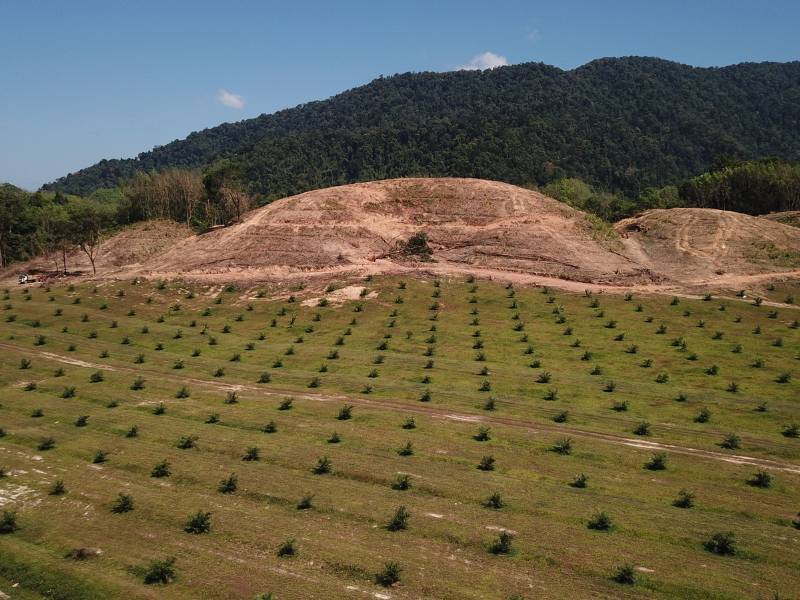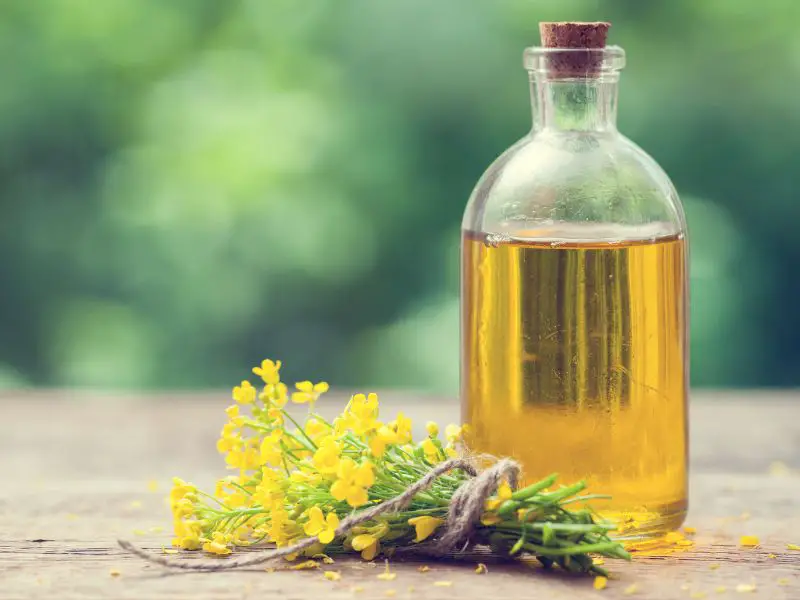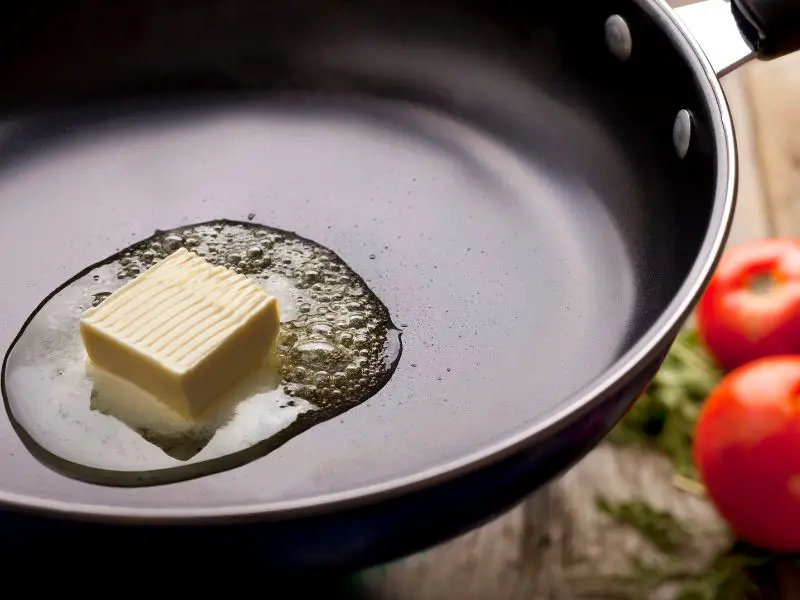Palm oil is a widely used ingredient in many products, from cosmetics to processed foods. Its popularity is because of its low cost and creamy texture, but it also comes with some drawbacks. Besides damaging the environment, it can also be challenging to work with and may cause skin reactions in some users.
For those looking for an alternative, various palm oil substitutes are available on the market today. This article will discuss the different substitutes for palm oil, their advantages and disadvantages, and how you can use them for your own recipes.

How’s Palm Oil Used
You’ve probably come in contact with palm oil today without even realizing it. It could be in your shampoo, soap, toothpaste, vitamins, makeup, or even breakfast. Think about it. The bread and coffee you had this morning could’ve had palm oil as an ingredient. And let’s not forget, the car or public transportation you took to get around was likely fueled by palm oil too. It’s everywhere. Even your device’s electricity may have come from burning palm oil kernels.
The World’s Oil
Palm oil is the most used vegetable oil on the planet, and it’s present in half of what we use daily. It has likewise been utilized for different modern applications. In 2018, agriculturists delivered 77 million heaps of palm oil for the worldwide market to buy, climbing to the target of 107.6 million tons by 2024.
Palm oil is well known because of its remarkable chemistry. It comes from the seeds of West African oil palms. Palm oil is pale in color and scentless, making it perfect for certain cuisines and the food industry.
Palm oil can likewise deal with high temperatures while cooking and has a long shelf life. What’s more, it very well may be utilized as fuel, and whatever remains of the ‘waste’ (shells and kernels) can be broken down and used for making concrete or used as another replacement for cement.
Oil palms are easy to grow in the tropics and are profitable for farmers, even in tough soils. That’s why this crop is often overproduced leading to more deforestation.
Why Is Palm Oil Completely Unsustainable?
Unfortunately, the fast growth of palm oil plantations is causing significant problems. It’s causing massive deforestation in Indonesia and Malaysia and destroying the habitats of endangered wildlife like the orangutan, putting them at risk of extinction. Indonesia and Malaysia have around 13 million hectares of oil palm plantations, almost half of the world’s total. In the last 17 years, Indonesia lost an area of tree cover nearly as big as New Zealand.
Because of this, governments and businesses are under pressure to find alternatives to palm oil. But finding substitutes for palm oil is very challenging.
Why the Need for Palm Oil Substitutes?
There is a growing need for substitutes for palm oil due to the negative environmental and social impacts associated with its production. Palm oil is widely used in many industries such as food, cosmetics, and biofuels due to its versatility, low cost, and high yield.
However, the production of palm oil has been linked to deforestation, habitat destruction, loss of biodiversity, and human rights abuses, particularly in countries such as Indonesia and Malaysia, which are major producers of palm oil.
As a result, there has been increasing demand for sustainable and ethical alternatives to palm oil. Some companies and industries have begun to shift towards using substitute ingredients such as canola oil, soybean oil, sunflower oil, and coconut oil, among others. These substitutes for palm oil are often seen as more environmentally friendly and socially responsible, as they do not contribute to deforestation or human rights abuses. In addition, some of these substitutes have similar properties to palm oil, making them viable alternatives in a variety of applications.
Overall, the need for substitutes for palm oil arises from the desire to mitigate the negative impacts associated with its production, and to move towards more sustainable and ethical practices in the food, cosmetics, and biofuels industries.
Substitutes for Palm Oil
Despite the challenges, there is some good news. Several substitutes for palm oil are readily available. These substitutes offer consumers and businesses a more sustainable and environmentally friendly solution.
1. Vegan Butter
Vegan butter is one of the tastier substitutes for palm oil in recipes that require solid fat. Not only does it add a rich, creamy flavor to baked goods like biscuits, but it also has a flaky texture. Sure, butter has a lot of saturated fat like palm oil, but at least it has a delicious taste that makes it worth using in your cooking. And let’s be honest; there’s something about baked goods made with butter flavor that can’t be replicated with other oils or fats.
“Vegan butter: where compassion and flavor meet in perfect harmony.”
– Unknown
2. Olive Oil
Olive oil can be used in soap making. According to SoapBoxCorner, olive oil soaps turn out just as hard as palm oil-based soaps and have better lathering qualities and durability. While it’s not ideal for high-heat cooking, olive oil can be an excellent substitute for low-heat cooking. Remember that it might not hold up well under high temperatures, so you might need to find a different substitute for high-heat cooking.

3. Canola Oil
You can use canola oil for frying and high-heat cooking. It’s one of the healthiest substitutes for palm oil as it’s high in unsaturated and low in saturated fats and contains plenty of beneficial omega-3 fatty acids. While finding non-contaminated canola oil can be a challenge, it’s still a solid substitute for palm oil for high-heat cooking.

“Canola oil: the golden elixir of heart-healthy cooking.”
– Unknown
4. Coconut Oil
Coconut oil is a versatile solid ingredient that boils around temperatures below 75 degrees F. It can be used for soap making, high-heat cooking, and even as a solid fat. It has a high amount of saturated fats but also gives your dishes a yummy coconut taste.

5. Rapeseed Oil
Rapeseed oil is a fantastic substitute for palm oil. With a high smoke point, it’s perfect for frying and roasting and won’t quickly burn. Not only is it good for your health with its monounsaturated fats, but it’s also great for baking and adds a tasty flavor to salads and mayonnaise. Even better, it may even help protect against certain types of cancer. With its versatility in cooking and baking, it’s no surprise that many choose rapeseed oil as a substitute for palm oil.
“Rapeseed oil: Nature’s gift for wholesome cooking, where health meets flavor in a golden embrace.”
– Unknown
6. Vegetable Margarine
Vegetable margarine is a viable choice for those attempting to switch out palm oil. It’s moderately priced and widely available in grocery stores around the world. This spread is usually made from a combination of oils, like rapeseed, soybean, sunflower, or canola, and is rich in omega-3 fatty acids, which make it beneficial for the heart.
Nevertheless, when utilizing it as a good substitute for palm oil, there are a few points to remember. Vegetable margarine has a lower melting point than butter, so some recipes could not turn out as anticipated. Also, it has a more prominent taste level, so you may want to use less of it in your recipe.

7. Heterotrophic Agal Oil
Heterotrophic algal oil is a unique substitute for palm oil mentioned by ScienceDirect. This type of oil is grown from chlorella, a dense-celled alga that requires less space to grow than other options.
While this seems promising, there are a few drawbacks to consider. Firstly, it’s pretty expensive, and secondly, it requires a vast amount of sugar to grow. Only 4% of the world’s sugar cane is considered sustainable. On the bright side, other algae options could replace diesel or oil used in the shipping industry, according to The BBC. However, this technology is still in its early stages, and cost may be the deciding factor.
Author’s Note
Many substitutes for palm oil are worth exploring and considering. Each substitute offers unique benefits and drawbacks, from butter, olive oil, canola oil, coconut oil, rapeseed oil, and vegetable margarine to heterotrophic algal oil. When choosing a substitute for palm oil, it’s essential to consider factors such as flavor, health benefits, cooking and baking applications, and cost.
Ultimately, the best substitutes for palm oil will depend on your individual needs and preferences. Regardless of the choice you make, opting for a more sustainable alternative to palm oil can have a positive impact on both the environment and your health.
Also check out: Horticulture vs. Agriculture, Urban Garden, The Truth About Fruit Sugar

